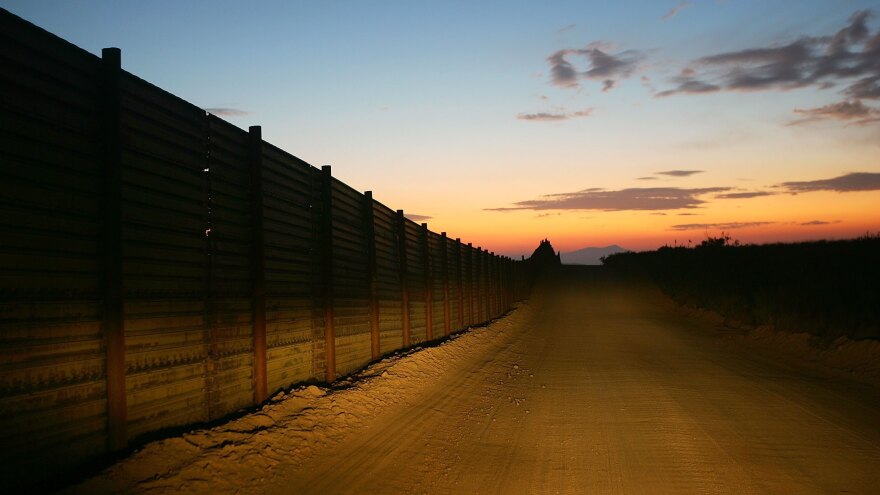Three years ago, Maira fled El Salvador, crossed into the United States illegally and asked for asylum. She says her partner of 12 years was abusive, physically and emotionally, and that she has scars on her body to prove it.
But she's waited a long time for her asylum hearing in New York.
The Trump administration is dispatching immigration judges from around the country to courts that are closer to the southern border as part of its crackdown on illegal immigration. That decision is draining resources from New York City's immigration court — the busiest in the nation, with a backlog of 80,000 cases.
"I want a definitive answer; it's really important to be with my family. And to be waiting and waiting is an anguish for me," she said in Spanish. She asked that NPR not use her full name to protect her privacy as a victim. Her lawyer, Shouan Riahi, who is with Central American Legal Assistance, translated.
To be waiting and waiting is an anguish for me.
Maira wants asylum so she can bring her children here. Her hearing was eventually scheduled for March. But a week before, her lawyer learned the judge was headed to hear cases in Louisiana. Maira's date was rescheduled for October 2018.
Federal officials declined to comment on the personnel moves.
But through interviews with attorneys and other sources around the country, WNYC determined at least eight of New York City's 29 immigration judges have been temporarily reassigned since March to hear cases in Texas and Louisiana.
That only makes the problem in New York worse. These days, people are waiting on average more than two years to have their cases heard in the city's immigration courts.
"If they have children who are abroad, that will delay family unification, or spousal reunification if their spouse is abroad," says immigration lawyer Bryan Johnson. He's based on Long Island and represents people seeking asylum.
Across the country, the backlog in the nation's immigration courts more than doubled as former President Obama deported more people. The Trump administration says it plans to hire 50 more immigration judges. But experts say that's still not enough.
Louisiana attorney Ken Mayeaux questions the recent reassignments.
"I don't really think that they need all these judges," he says.
That's because the judges sent down south are hearing the cases of immigrants in detention, including people who illegally crossed the border. Yet those numbers have declined since Trump took office.
Meanwhile, immigrants in the southern detention centers wait just a month or two for their hearings, according to researchers at the Transactional Records Access Clearinghouse at Syracuse University. So, why move judges from the clogged courts of New York?
Retired immigration judge Paul Wickham Schmidt has one answer.
"Nobody cares what's happening on the home docket," he said. "It's all about showing presence on the border."
But another former immigration judge, Andrew Arthur, says there's a logic to the strategy, because it discourages illegal crossing. Arthur is now a fellow at the Center for Immigration Studies, a think tank that wants to limit immigration.
"The quicker that you hear the cases the less likely that an individual is to be released," he said, "therefore the less likely another group of individuals are to attempt to make the journey to the United States."
Recently, Maira, the immigrant in New York, got a resolution to her case. Her lawyer convinced the judge to swap court dates with someone else. And after hearing the case last month, the judge granted her asylum. Maira hugged her lawyer outside the courthouse.
"Tengo muy contenta[sic]," she said, which her lawyer translated as: "I'm very happy."
Others may not be so lucky. The Trump administration has now ramped up arrests north of the border, adding to the dockets in the nation's immigration courts.
Copyright 2021 WNYC Radio. To see more, visit WNYC Radio. 9(MDA4MDc0NDkyMDEzMTQ4ODU0MTE0OGNiNg004))

